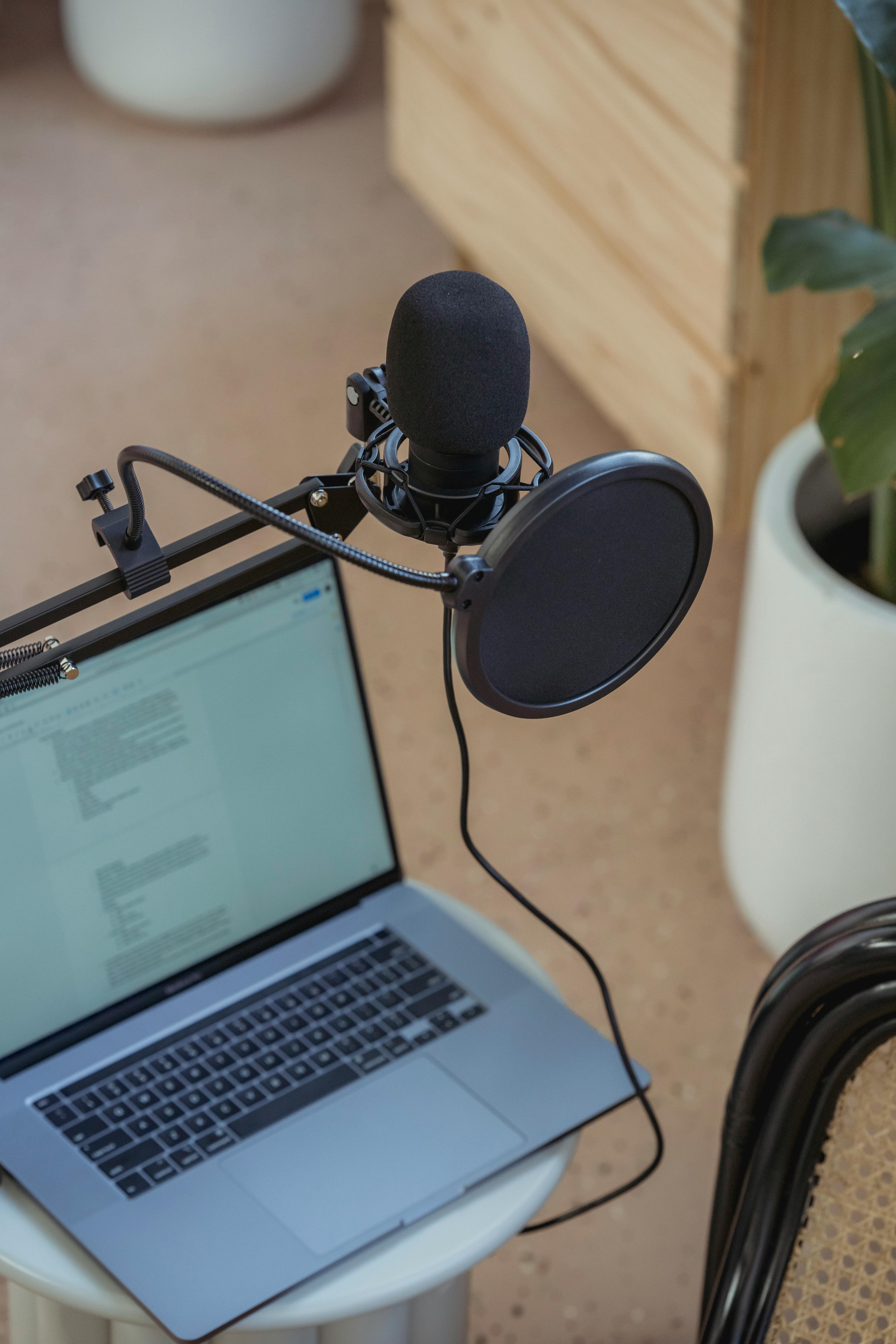Are you a podcaster looking to increase the visibility and reach of your show? Look no further, because in this article, we will be exploring the topic of Podcast SEO and how it can help optimize your podcast for discovery. In today’s competitive online landscape, it’s crucial to stay ahead of the game and maximize your podcast’s potential. By utilizing SEO techniques specifically tailored for podcasts, you can enhance your chances of being discovered by a wider audience, boost your podcast’s rankings, and ultimately unlock the online success you’ve been striving for. So, let’s dive in and learn more about the fascinating world of Podcast SEO and how it can revolutionize your podcasting journey.
Podcast SEO: Optimizing for Podcast Discovery
Podcasts have gained immense popularity in recent years, with millions of people tuning in to listen to their favorite shows. However, with the increasing number of podcasts available, it’s essential to optimize your podcast to ensure it stands out from the crowd and reaches its target audience. This is where podcast SEO comes into play. In this article, we will explore the ins and outs of podcast SEO, and how you can leverage it to increase your podcast’s discoverability and grow your audience.

1. What is Podcast SEO?
1.1 Definition of Podcast SEO
Podcast SEO refers to the process of optimizing your podcast to enhance its visibility and discoverability in search engine results and podcast directories. Just like traditional SEO (Search Engine Optimization) for websites, podcast SEO aims to improve the rankings of your podcast in search results, making it easier for potential listeners to find.
1.2 Importance of Podcast SEO
With over 2 million podcasts available today, the competition for listeners’ attention is fierce. Investing time and effort into podcast SEO is crucial to ensure your podcast reaches its intended audience. By optimizing your podcast for search engines and directories, you can increase its visibility, attract more organic traffic, and ultimately grow your listener base.
1.3 How Podcast SEO differs from traditional SEO
While traditional SEO focuses on optimizing web content, podcast SEO has its unique strategies and considerations. While both aim to improve visibility in search results, podcast SEO involves optimizing various elements specific to podcasts, such as episode titles, descriptions, and metadata. Understanding these differences is key to effectively optimize your podcast and reach your target audience.
2. Keyword Research for Podcast SEO
2.1 Identifying relevant keywords for your podcast
Keyword research is the foundation of any successful SEO strategy, including podcast SEO. Start by identifying relevant keywords and phrases that are popular among your target audience. Think about the topics, themes, or keywords that best represent your podcast’s content. Understanding what your potential listeners are searching for will help you create relevant and engaging content that resonates with them.
2.2 Tools and techniques for keyword research
Several tools and techniques can assist you in conducting keyword research for podcast SEO. Popular keyword research tools like Google Keyword Planner, Ahrefs, or SEMrush can provide valuable insights into keyword search volume, competition, and related keywords. Additionally, analyzing competitor podcasts and their chosen keywords can provide inspiration for your keyword strategy.
2.3 Long-tail keywords for podcast optimization
When conducting keyword research for podcast SEO, consider targeting long-tail keywords. Long-tail keywords are longer, more specific phrases that have lower search volume but often indicate higher intent and audience relevance. Incorporating relevant long-tail keywords into your podcast’s metadata, titles, and descriptions can help you attract targeted listeners who are actively searching for content like yours.

3. Naming and Branding Your Podcast for SEO
3.1 Choosing an SEO-friendly podcast title
The podcast title plays a crucial role in attracting potential listeners. When selecting a podcast title, consider using relevant keywords that accurately reflect your podcast’s content. Make sure the title is concise, memorable, and easily searchable. Avoid generic titles that may make your podcast get lost in a sea of similar shows.
3.2 Incorporating keywords into your podcast name
Integrating relevant keywords into your podcast name can significantly impact its discoverability. Consider incorporating primary keywords or related phrases that align with your podcast’s topics or target audience. However, ensure the inclusion of keywords feels natural and doesn’t compromise the overall appeal or branding of your podcast.
3.3 Creating a compelling podcast description
Crafting a compelling podcast description is essential to give potential listeners a clear understanding of what your podcast offers. Utilize relevant keywords while maintaining a conversational and engaging tone. A well-written description not only improves your podcast’s SEO but also entices potential listeners to hit the play button.
4. Optimizing Podcast Episode Titles and Descriptions
4.1 Importance of episode titles and descriptions for SEO
Every episode of your podcast presents an opportunity for optimization. Optimizing episode titles and descriptions is crucial as they directly impact the discoverability of individual episodes. By incorporating targeted keywords and providing informative descriptions, you increase the chances of your episodes appearing in relevant search results.
4.2 Writing keyword-rich episode titles
When crafting episode titles, focus on incorporating relevant keywords that accurately describe the episode’s content. Think about what potential listeners would search for and use those phrases strategically. Ensure your titles are concise, descriptive, and compelling to attract both search engines and human listeners.
4.3 Crafting informative and engaging episode descriptions
Episode descriptions offer you an opportunity to provide more context and entice potential listeners to click and listen. Write informative, keyword-rich descriptions that accurately summarize the episode’s content while appealing to your target audience’s interests. Including timestamps of key discussion points in longer episodes can further enhance the accessibility and searchability of your episodes.

5. Metadata Optimization for Podcast SEO
5.1 Importance of metadata for podcast discovery
Metadata plays a crucial role in podcast SEO as it helps search engines and podcast directories understand and categorize your content accurately. Optimizing metadata ensures that search engines and directories can match your podcast with the right queries, increasing its visibility to potential listeners.
5.2 Optimizing podcast file names
When publishing your podcast episodes, ensure that the file names reflect the episode’s content using relevant keywords. Renaming your audio files with descriptive and keyword-rich titles can positively impact your podcast’s SEO and make it easier for search engines and directories to crawl, index, and categorize your episodes accurately.
5.3 Adding relevant tags and categories
Tags and categories further contribute to your podcast’s discoverability. Choose tags that align with the episode’s content and resonate with your target audience. Additionally, select appropriate categories that accurately represent your podcast’s genre and themes. These metadata elements provide additional context to search engines and directories, ensuring your podcast appears in relevant search results.
6. Creating Transcripts for Podcasts
6.1 Benefits of podcast transcripts for SEO
Transcripts provide a text-based version of your podcast’s content, offering several benefits for SEO. Firstly, transcripts improve accessibility for hearing-impaired individuals and non-native English speakers. Additionally, search engines can easily crawl and index transcripted content, making it more likely to appear in search results. Transcripts also provide an opportunity to optimize content with relevant keywords.
6.2 Techniques for creating accurate transcripts
Creating accurate transcripts involves transforming your podcast’s audio content into a written format. This can be done manually by transcribing the episodes yourself or using automated transcription services. Manual transcription provides higher accuracy and allows you to make editorial improvements, while automated services offer speed and convenience.
6.3 Optimizing transcripts for keywords and readability
Once you have a transcript, optimize it for both search engines and readability. Incorporate relevant keywords naturally throughout the transcript, ensuring they fit contextually. Also, break the transcript into readable paragraphs, add headings, and format it effectively. This not only improves the transcript’s readability but also enhances SEO by creating an organized and scannable piece of content.
7. Submitting Podcasts to Directories
7.1 Importance of podcast directories for discovery
Podcast directories serve as a hub for podcast discovery, making it essential to submit your podcast to popular directories. These directories increase your podcast’s visibility, expose it to new audiences, and improve its chances of being discovered by potential listeners interested in your niche.
7.2 Submitting your podcast to popular directories
Start by submitting your podcast to popular directories such as Apple Podcasts, Spotify, Google Podcasts, and Stitcher. Each directory has its submission process, which may include providing metadata, artwork, and RSS feed information. Ensure your podcast’s metadata is optimized for each directory and follow their guidelines for the best results.
7.3 Optimizing your podcast profile on directories
To maximize your podcast’s discoverability on directories, optimize your podcast’s profile. Ensure that your podcast’s title, description, and artwork are aligned with your brand and accurately depict your content. Additionally, select relevant categories and tags provided by the directories to enhance your podcast’s visibility to potential listeners interested in your niche.
8. Building Backlinks for Podcast SEO
8.1 Why backlinks are crucial for podcast SEO
Backlinks, or external links pointing to your podcast, are crucial for podcast SEO as they signal to search engines the authority and credibility of your podcast. Backlinks from reputable websites can significantly improve your podcast’s rankings in search results and increase its visibility to potential listeners.
8.2 Strategies for acquiring high-quality backlinks
Building high-quality backlinks requires a proactive approach. Engage in guest blogging, where you write articles for relevant websites and include links back to your podcast. Collaborate with other podcasters or industry influencers for interviews or guest appearances, where they can link back to your podcast. Additionally, actively engage in online communities and forums relevant to your podcast’s topics and share valuable insights, including links to relevant podcast episodes.
8.3 Leveraging guest appearances to build backlinks
Guest appearances on other podcasts are an excellent opportunity to build backlinks and expand your podcast’s reach. When appearing as a guest, ensure that the podcast host includes links to your podcast or website in the show notes or episode description. This not only helps drive traffic to your podcast but also signals to search engines the relevancy and authority of your content.
9. Promoting and Sharing Your Podcast
9.1 Utilizing social media platforms for podcast promotion
Social media platforms provide an excellent opportunity to promote and share your podcast with a wider audience. Create dedicated social media accounts for your podcast, regularly share engaging content and sneak peeks, and encourage your followers to tune in. Share episode links, behind-the-scenes moments, and listener testimonials to generate interest and encourage sharing among your existing audience.
9.2 Encouraging listeners to share and review your podcast
Word-of-mouth is a powerful tool for podcast promotion. Encourage your listeners to share your podcast with their friends, family, and social networks. Ask for reviews and ratings on podcast directories as positive reviews not only boost your podcast’s credibility but also improve its rankings in search results. Consider offering incentives, such as exclusive content or giveaways, to incentivize listeners to share and review your podcast.
9.3 Collaborating with other podcasters for cross-promotion
Collaborating with other podcasters is an effective way to cross-promote and reach a new audience. Consider participating in podcast swaps, where you appear as a guest on another podcast and vice versa. This allows you to tap into each other’s listener base, expose your podcast to new audiences, and build relationships within the podcasting community.
10. Analyzing and Improving Podcast SEO Performance
10.1 Tracking podcast SEO metrics and analytics
Monitoring and analyzing podcast SEO metrics is essential to evaluate the effectiveness of your optimization efforts. Use podcast analytics tools like Chartable, Podbean, or Megaphone to track metrics such as downloads, listens, subscriber growth, and audience demographics. Additionally, monitor website analytics to understand the traffic sources and behavior of visitors coming from your podcast.
10.2 Using data to optimize your podcast strategy
Leverage the data collected from analytics to optimize your podcast strategy. Identify which episodes perform well, the keywords that drive traffic, and audience preferences. Use this data to create more targeted and engaging content, optimize episode titles and descriptions, and refine your keyword strategy. Continuously iterating and refining your podcast SEO efforts based on data insights will help you attract and retain your target audience.
10.3 A/B testing different SEO techniques
A/B testing allows you to compare the performance of different SEO techniques and make data-driven decisions. Experiment with different approaches to episode titles, descriptions, keywords, or promotional strategies. Split your audience and analyze the performance of each variant. Through A/B testing, you can identify the most effective SEO techniques and refine your overall podcast SEO strategy.
In conclusion, podcast SEO is a critical aspect of podcasting that cannot be overlooked. By implementing the strategies and techniques discussed in this article, you can optimize your podcast for search engines, directories, and social media platforms, ultimately increasing its discoverability, attracting more listeners, and growing your audience. Remember, podcast SEO is an ongoing process, so continue to adapt, iterate, and refine your strategy as your podcast evolves and grows.




